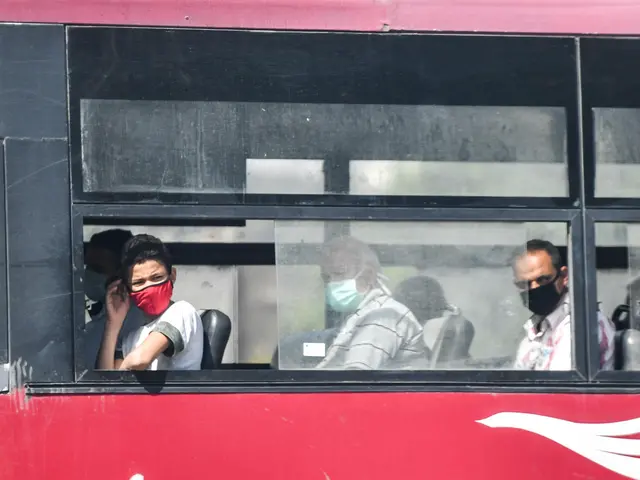Egypt will lift a curfew and allow cafes and restaurants to operate with limited capacity from June 27, as it gradually reopens the economy after three months of suspension over COVID-19 concerns.
ECONOMIC REVIVAL
"These measures would completely stimulate the economy, ease the sufferings of the daily workers, and increase the levels of factories operation," said Waleed Gaballah, professor of financial and economic jurisdictions at Cairo University.
Lifting the night curfew is very important to facilitate the movement of workers, many of whom are working in places far away from home, Gaballah, also a member of the Egyptian Association for Political Economy, told Xinhua.
Restaurants, cafes, cinemas, and sporting clubs will be allowed to reopen on July 27, with a capacity initially capped at 25 percent, Prime Minister Mostafa Madbouly said in a televised press briefing on Tuesday.
Mosques and churches will be allowed to reopen, but weekly mass prayers on Friday and Sunday will remain suspended. Beaches and parks will continue to be closed.
Public transport will be allowed to run from 4 a.m. local time (0200 GMT) until midnight, while shops and malls will be closed by 9 p.m. and restaurants by 10 p.m.
The economic expert said the "Egyptian economy has lost 125 billion Egyptian pounds (7.74 billion U.S. dollars) of the GNP (Gross National Product) since the virus appeared in February," adding that the growth rate, expected to reach 5.8 percent in the current fiscal year ending in June, has declined to less than 4 percent.
He also pointed to the sharp slump of foreign investments, and the decrease of tourism revenues and expatriates' remittances driven by the country's lockdown.
The state budget for the fiscal year 2020-2021, which is difficult to be changed based on the constitution, puts the government before challenges because it allocated high expenditures for education, health, and increase of salaries, according to the expert.
The government will be forced to raise the rate of borrowing or take strict austerity measures if the revenues from tourism and taxes could not cover the gape of expenditures, he added.
Whether the Egyptian economy could restore its level before the spread of coronavirus, it also depends on the international partners, he said, adding that the Egyptian decision to resume air traffic and international tourism wouldn't be effective without other countries' approval.
He further added that the return of international trade will positively impact the Suez Canal revenues, and the opening of activities in the Gulf countries would attract the Egyptian workers and increase Egyptians' transactions abroad.
HEALTH CONCERNS
Magdy al-Dahshan, former deputy manager of Al-Azhar Medicine University, agreed that the recent government decisions are "good for gradually restoring the ordinary life."
"Reopening of cafes, restaurants and entertainment centers at 25 percent could contain further increase of the infections," al-Dahshan told Xinhua.
The number of infections is high now, but the virus seems to be going to stay for the time being and no country could afford to endure more economic losses, he said.
Gamal Esmat, consular to the World Health Organization, warns that the lifting of restrictions would possibly further increase the COVID-19 cases.
He said he would prefer the government to open activities in provinces with fewer cases, adding that though the death rate in Egypt is "moderate," the spread of the virus has lasted for five months which is a long time.
Egypt reported 61,130 cases of COVID-19 and 2,533 deaths in the latest update of the health ministry on Thursday.
(by Marwa Yahya)
 简体中文
简体中文

